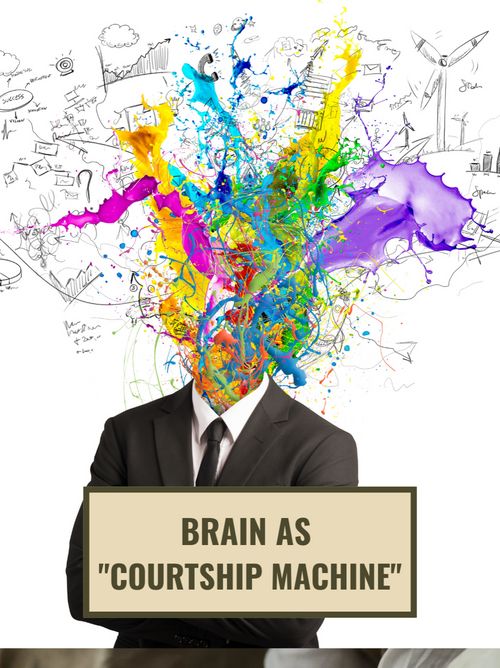The strange reason humans became creative
Feb 10, 2022 · 2 mins read
0
Share

Introduction. In The Mating Mind(1999), Geoffrey Miller notes that human beings are strange animals. We do things that no other animal does: communicate via sophisticated languages, produce music, appreciate humor - and much more. How did we evolve these unique abilities?
Save
Share
You can say these abilities have survival benefit, but do they? Miller writes: "Human language evolved to be much more elaborate than necessary. Art and music seem like pointless wastes of energy. Humor seems irrelevant to the business of finding food and avoiding predators."
Save
Share
Maybe all of this is "ornamental frosting" made possible by our big brains - which did evolve due to survival benefits? But then why do other "big-brained species like elephants and dolphins" not have their art-equivalent activities?
Save
Share
Miller's answer: the human brain is not just a survival machine - it is also a "courtship machine." To ensure their genetic success, our ancestors didn't just have to survive in the day - they also had to seduce at night. Perhaps "the mind evolved by moonlight."
Save
Share
Darwin told his son: "The sight of a feather in a peacock's tail, whenever I gaze at it, makes me sick!" If survival was the sole job, peacock tails would be "shorter, lighter, drabber." Instead, their tails are long, colorful, attention-grabbing - easier for predators to spot.
Save
Share
But the tail survived because it does serve a function: "to attract peahens." Miller writes: "The human mind and the peacock's tail may serve similar biological functions."
Save
Share
We show off our "complex brains" via intelligent conversation and artistic works. In biology, anything complex is "vulnerable to impairment through mutations." Showing off our vulnerable complex brain is a mating signal: I'm so fit I can afford costly luxuries like art.
Save
Share
Other species also know "complex behaviors make good fitness indicators." They carry out complex actions during courtship to advertise their genetic quality: Bowerbirds build big ornamented huts, fruit flies perform complex dances, Songbirds repeat "complicated, melodious songs."
Save
Share
How we know art "evolved for an evolutionary purpose": It is universal(stuff that provides an evolutionary edge spreads universally), it gives pleasure(evolution makes adaptive behaviors pleasurable), & it has huge energy+time costs (Energy and time are never wasted w/o purpose.)
Save
Share
Miller concludes: "Sexual selection made our brains wasteful: it transformed a small, efficient ape-style brain into a huge, energy hungry handicap spewing out luxury behaviors like conversation, music, and art." The brain's job is to help you survive - but also to get you laid.
Save
Share
0